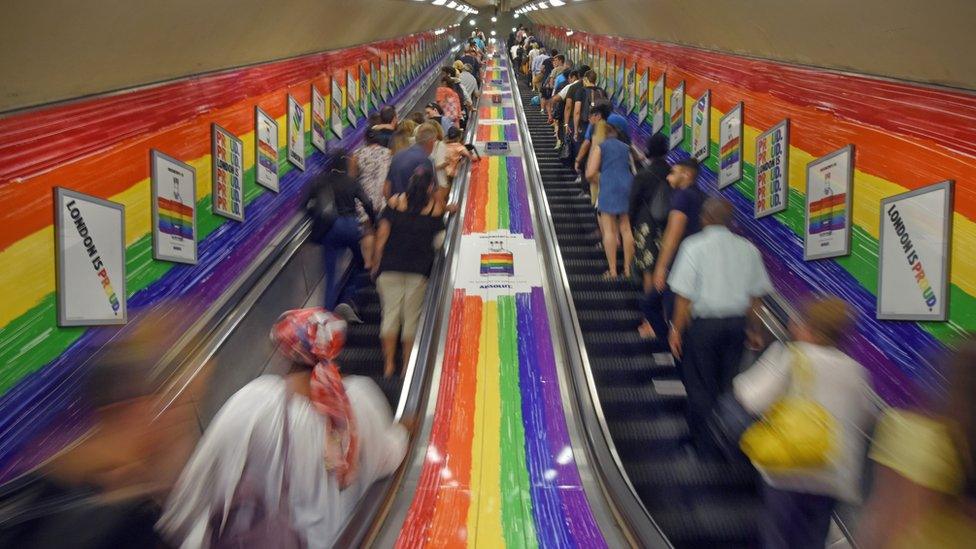LGBTQ+ Pride: Firms accused of 'rainbow-washing'
- Published
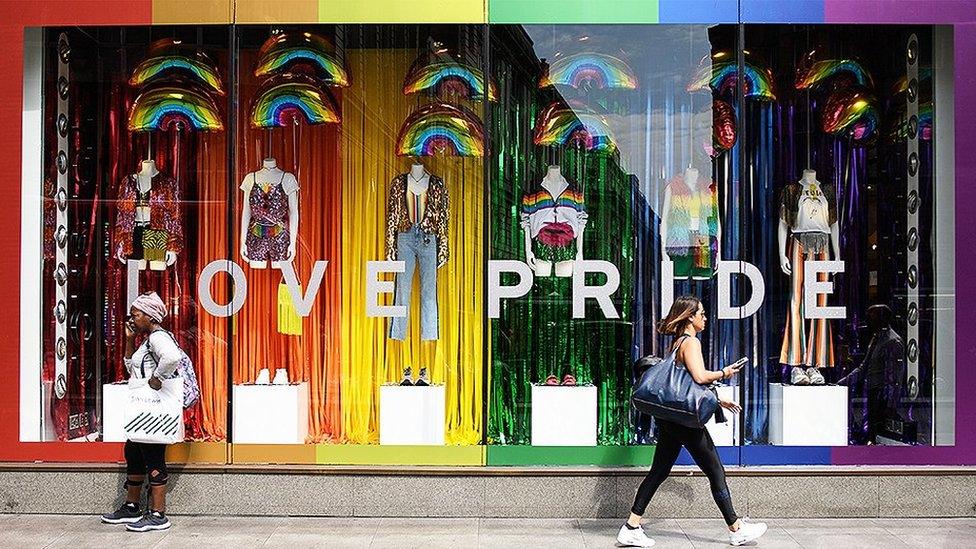
Many high street shops, supermarkets and banks change their logos, adding new window displays and selling special products to celebrate Pride
Major retailers are slapping rainbows on products in a bid to cash in on Pride, LGBTQ+ campaigners have claimed.
The Queer Emporium said they welcomed the extra visibility, but said very little money was going to the community and it felt like a "money grab".
An activist said there were also concerns around the exploitation of workers making merchandise in countries where it is illegal to be gay.
Pride Cymru said it was "heartening" to see many brands embracing Pride.
"Huge amounts of massive companies do just slap rainbows on their products and sell them at a higher price," said Yan White, founder and director of social enterprise and not-for-profit Queer Emporium.
He added that even when a portion of profit was donated to a community group or charity, it was relatively "minuscule".
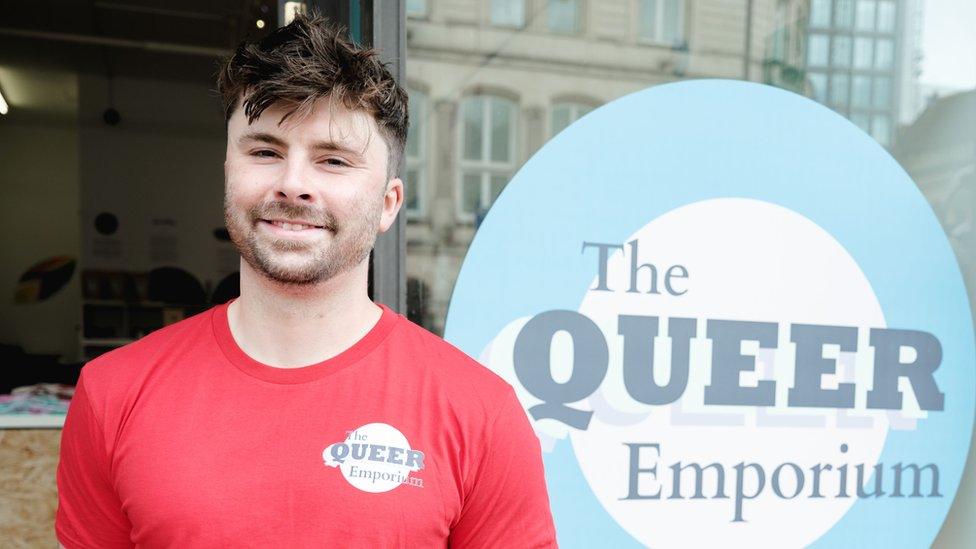
Mr White felt that sometimes larger businesses, particularly chains, are not held to account because people just choose to ignore it
"Lots of brands will create rainbow versions of their products, but the reality is there's very little, if any money actually going back to the LGBTQ+ community.
He added that whilst the increased visibility was good, as well as things like LGBTQ+ networks in companies, he believed businesses profiting from merchandise could do more to help communities.
"I think the trans community is by far the most persecuted in the UK in the media and on a political level as well, so I think a lot of those companies could throw their weight behind that particular group, I think that could make a bigger difference if they really do want to do something progressive."
Initially set up for four weeks during last year's Pride month, to offer a more localised service to people who wanted to celebrate the occasion, the Cardiff store has remained open and now works with around 20 LGBTQ+ businesses.

History of the rainbow
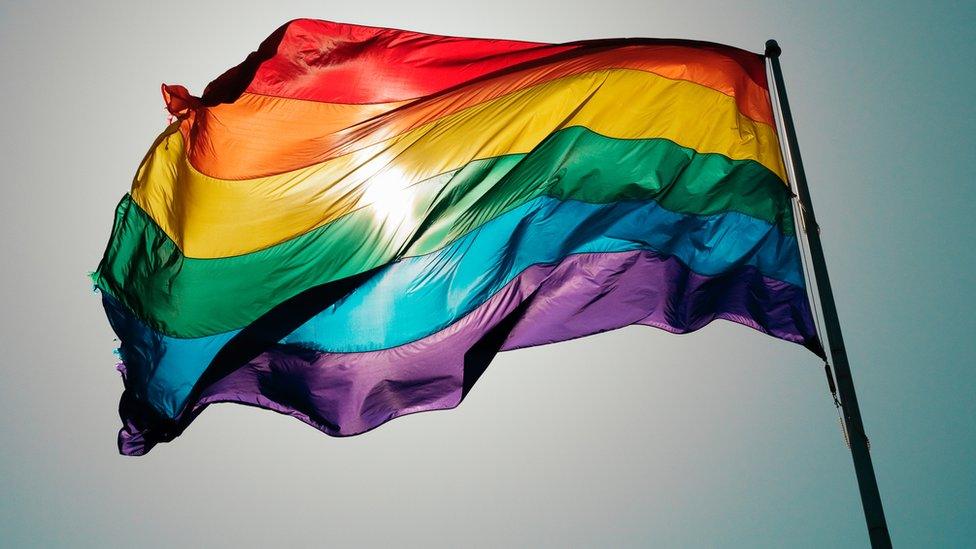
The rainbow flag is an important symbol for pride, but there is more than one kind of rainbow flag, and some parts of the LGBTQ+ community have their own flags
The rainbow flag - a symbol for the LGBTQ+ community - first appeared back in 1978, when artist Gilbert Baker made a design with eight stripes to be used on gay freedom day in San Francisco.
It's use spread across America, and by the 1990s it was a symbol for people trying to get equal rights for the community.
The range of bright colours are used by some as a symbol to celebrate differences, to say everyone should feel included no matter who they love or how they feel about themselves, and to show support for the community.
The red stripe represents life, orange represents healing, yellow represents sunlight, green represents nature, blue represents art and violet represents the human spirit.
Over the last few years the flag has changed and been updated to represent more communities.
Pride in London: What do the flags mean?

Mr White said he had noticed a growing desire among customers for ethically made products.
"I think there is a problem where if you want to shop in a shop like mine, you would expect that level of ethics to be there.
"I'm glad we're held to account but I feel that sometimes larger businesses, particularly chains, just aren't, because people just choose to ignore it."
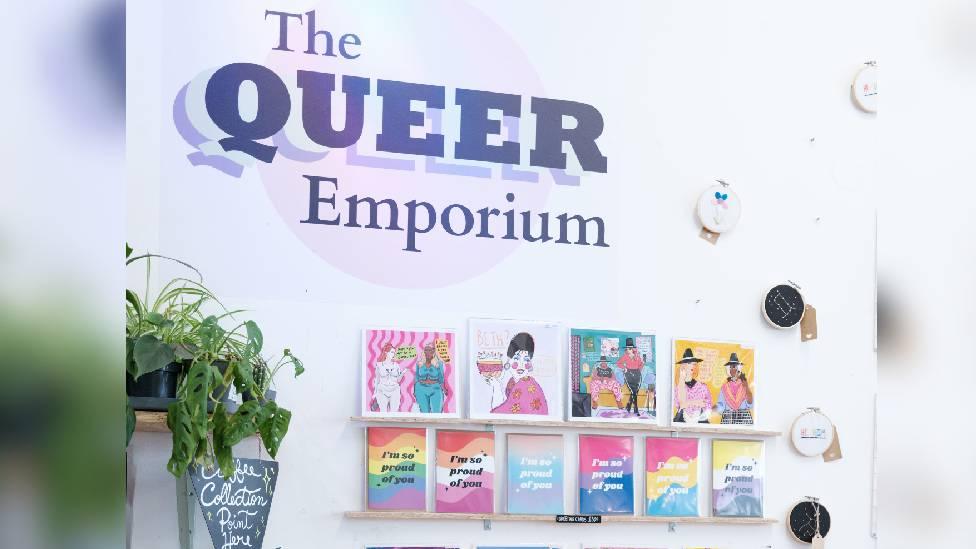
Mr White said what many of the massive companies donate to LGBTQ+ organisations was minuscule compared to how much money they have
Izzy McLeod from Cardiff said while it was nice to have reached a place where rainbows were on a lot of products, they were concerned about conditions for workers making the products.
"We shouldn't be relying on exploitation of other people for us to celebrate ourselves," the activist said.
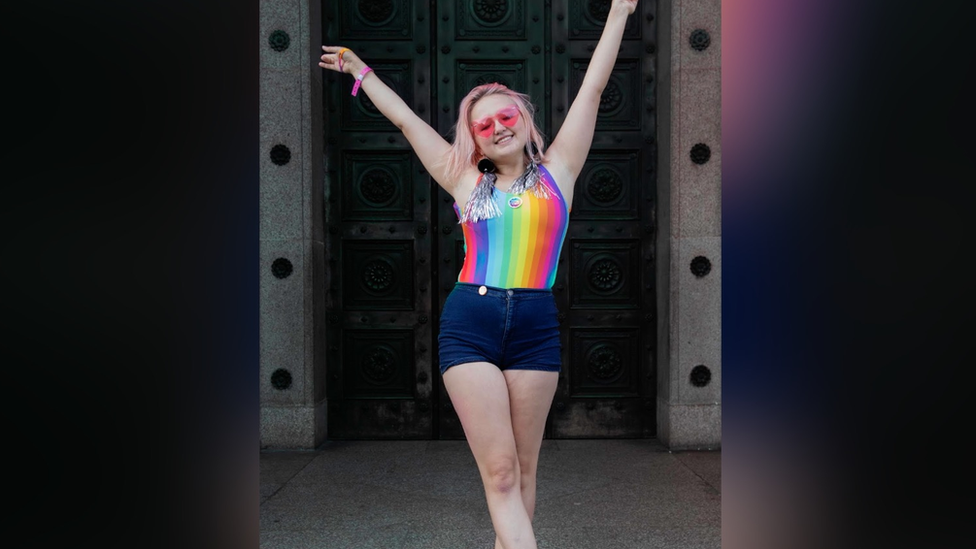
Izzy said people should prioritise buying pride merchandise from LGBTQ+ creatives all year round, not just during Pride season
"These corporations are doing it because it is profitable, and when they're doing it in a way that's saying 'we support LGBTQ+ people whilst making merchandise in countries where maybe it's illegal to be gay', then it comes across as very 'we're going to take your money, but we're not going to do the work," the 24-year-old said.
"Pride should be about queer liberation for all, not just capitalising on the pink pound, we cannot continue to let brands pander to one part of the LGBTQ community, while participating in the exploitation of another."
Izzy said no-one should feel guilty if they had already bought merchandise from a major retailer - the focus should be more on calling out brands who could do more.
"It's about empowering people to make a change, but while shouting at those who do have the power to make those changes," the campaigner added.
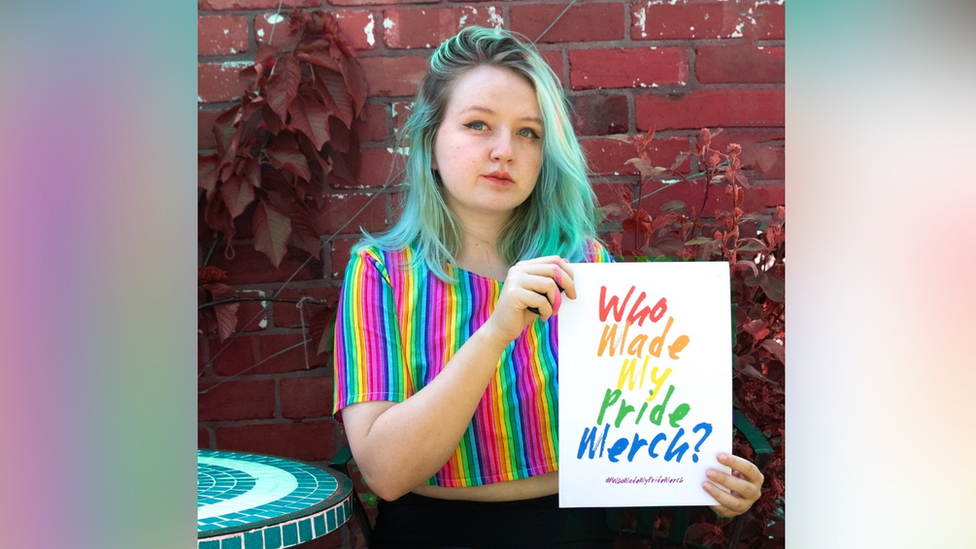
Izzy started the campaign "Who Made My Pride Merch?" which asks brands who is making their pride collections, and standing in solidarity with LGBTQ+ garment workers worldwide
They would also like to see customers support queer creatives wherever possible, not just for Pride merchandise but all year round.
Izzy added that more people were now aware of the origins of Pride, in that it is both a protest and a party, and question if organisations getting involved are reflecting the right values.
"When I've been to prides across the UK, there are several corporate organisations with their rainbow logos in the parade, but you don't see any community organisations, or people who try and join get kicked off and that's the opposite of what should be happening."
"These brands should be helping, not taking up the space themselves - they are never going to change, unless we make them change."
Cardiff Pride march - and how it took its first steps in 1985
A spokesperson for Pride Cymru said: "Twenty years ago, you wouldn't have seen so many household names embracing Pride so openly in their brand and it is heartening for staff and customers to see they are loved and valued.
"Although we do think profit sharing with LGBTQ+ charities should be considered on Pride themed merchandise, we also wholeheartedly agree that companies must have ethical supply chains, which enhance the rights of our LGBTQ+ family around the world."
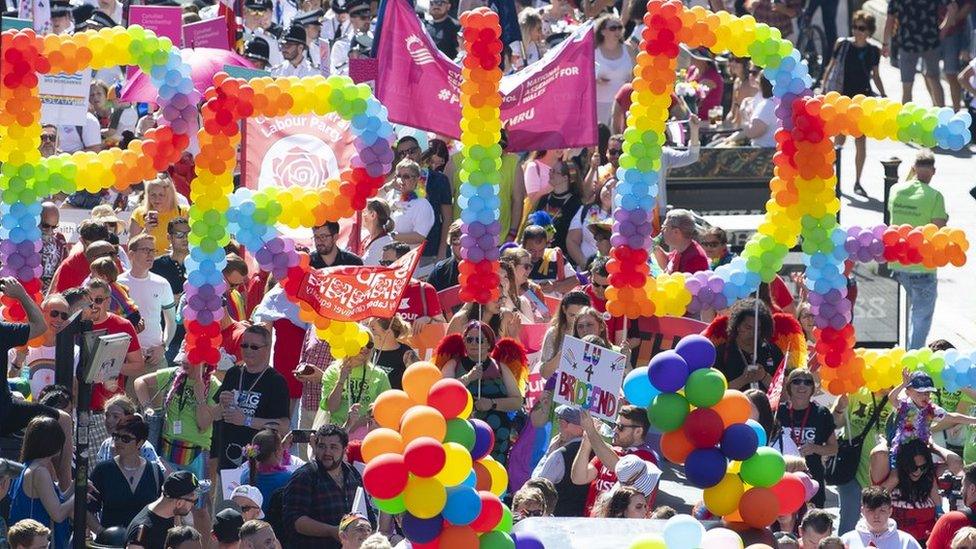
Pride in Cardiff is back this year, after it was cancelled in 2020 and 2021 because of the Covid pandemic
The Welsh Retail Consortium said retailers were keen to support the LGBTQ+ community.
"The selling of items that promote the LGBTQ+ community shows a huge step forward in the attitudes of the country towards this minority group, furthermore, nearly eighty leading retailers came together in 2021 to sign the WRC's Diversity and Inclusion charter, which aims to embed better representation of minority groups, including LGBTQ+, within all levels of retail."
- Published10 July 2022
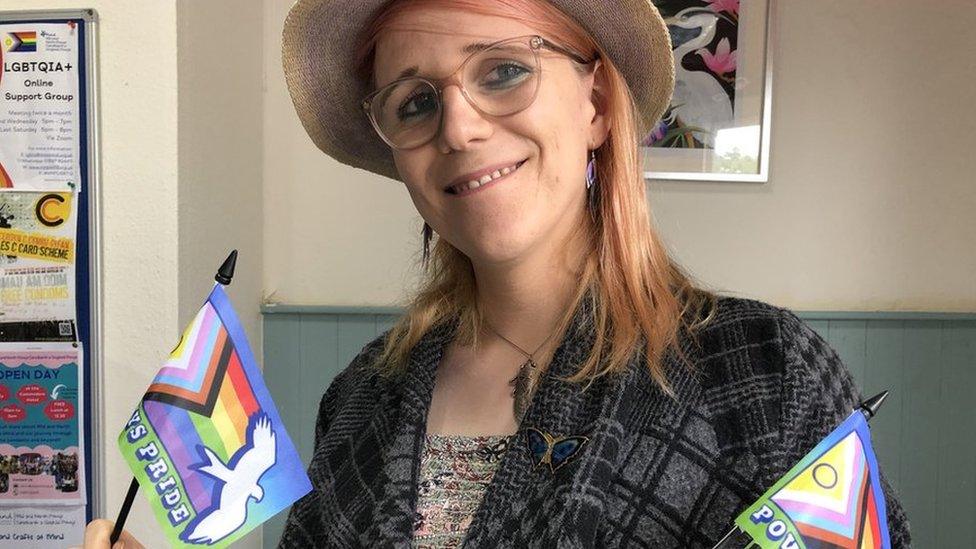
- Published3 July 2022
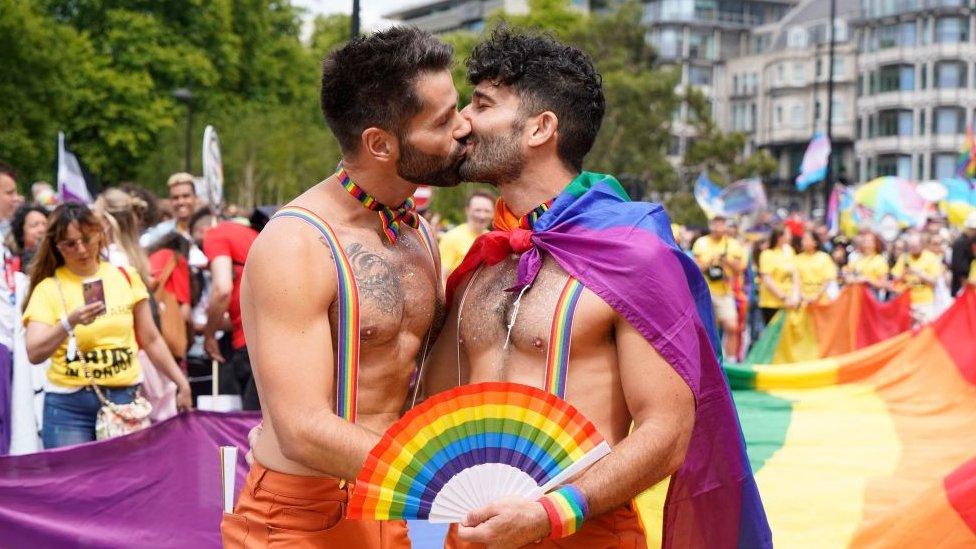
- Published1 July 2022
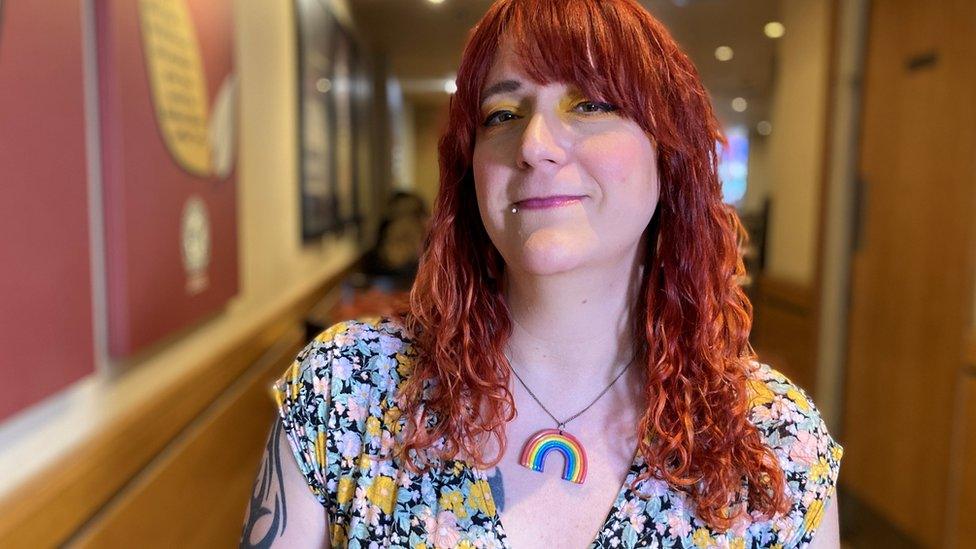
- Published1 July 2022
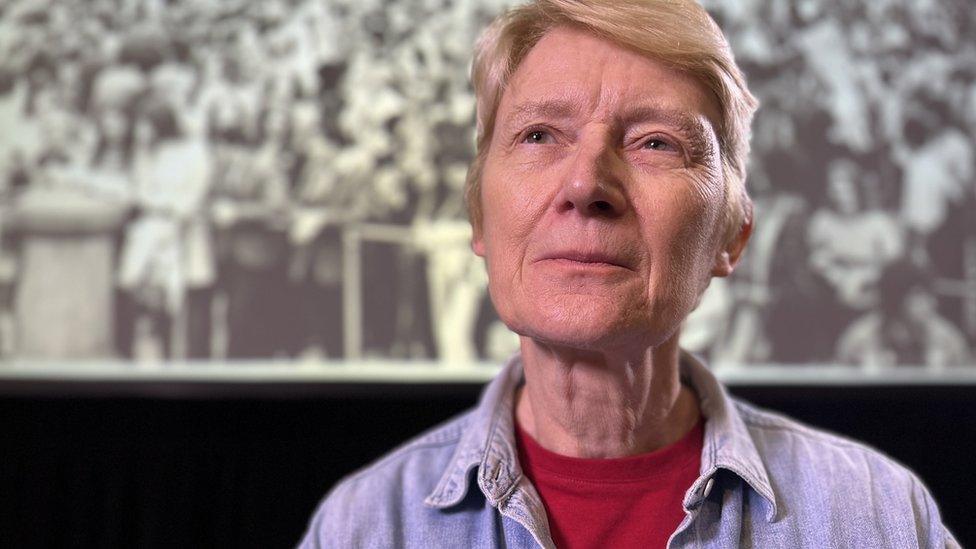
- Published18 February 2022
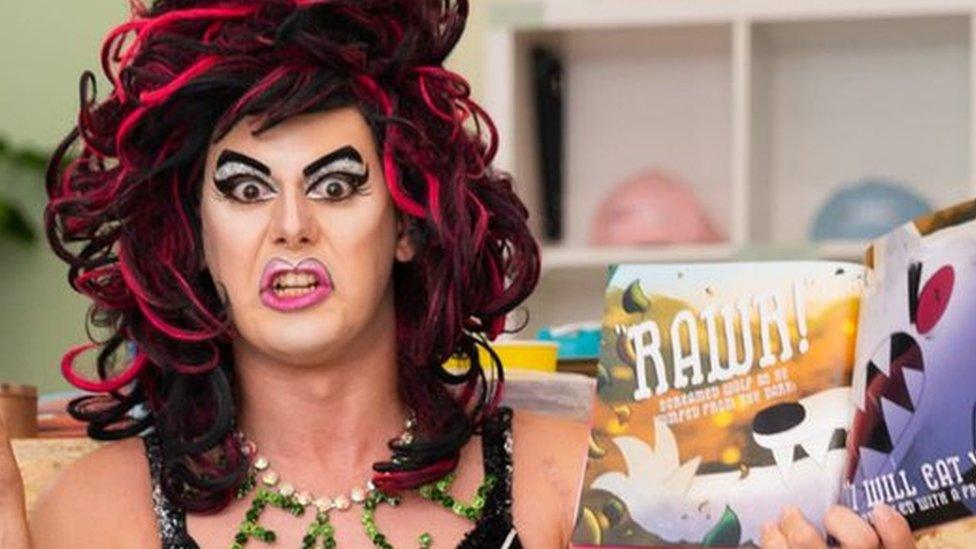
- Published5 July 2019
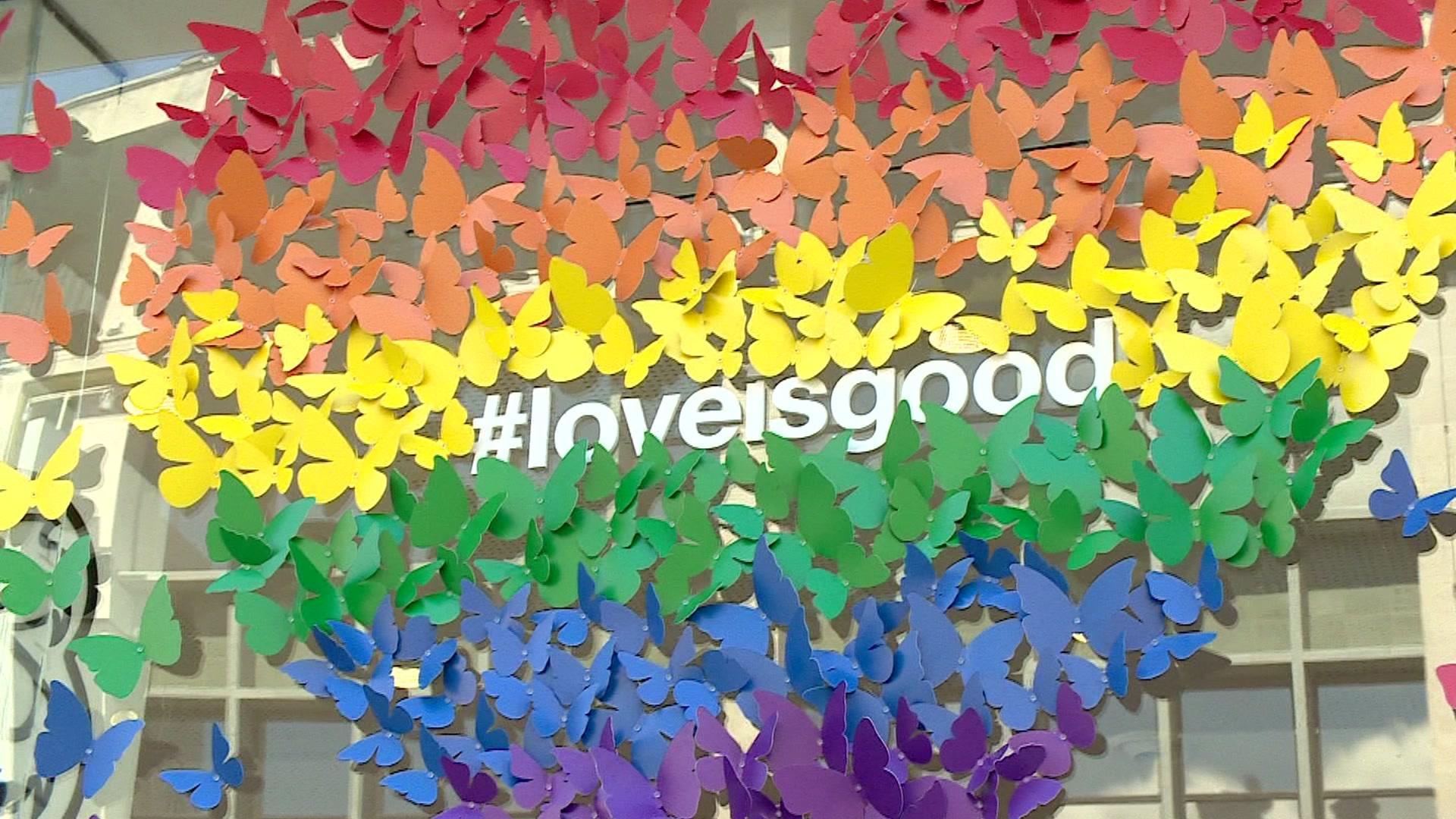
- Published20 June 2018
